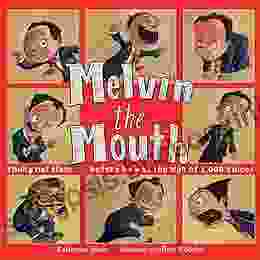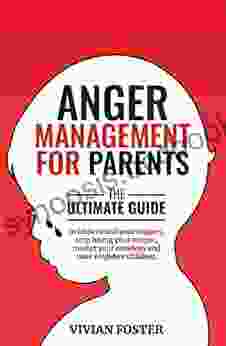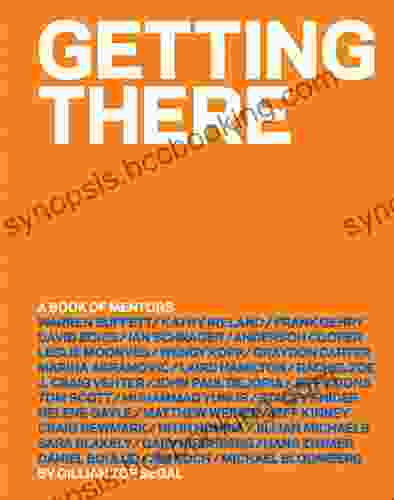The Ultimate Guide to Understanding Your Triggers and Stop Losing Your Temper: Master Your Emotions and Live a Fuller Life

We all have triggers, those situations or events that set us off and cause us to react in ways we later regret. If you're tired of losing your temper, feeling out of control, and damaging your relationships, then this guide is for you.
4.7 out of 5
| Language | : | English |
| File size | : | 704 KB |
| Text-to-Speech | : | Enabled |
| Screen Reader | : | Supported |
| Enhanced typesetting | : | Enabled |
| Word Wise | : | Enabled |
| Print length | : | 177 pages |
| Lending | : | Enabled |
In this comprehensive book, you'll learn everything you need to know about triggers, including:
- What triggers are and how they work
- How to identify your triggers
- How to develop coping mechanisms for dealing with triggers
- How to break the cycle of reactivity
With practical exercises and real-life examples, this guide will help you to understand your triggers, master your emotions, and live a more fulfilling life.
What Are Triggers?
Triggers are stimuli that cause us to react in a negative way. They can be anything from a person to a place to a situation. When we're triggered, our bodies go into "fight or flight" mode, and we may experience a range of physical and emotional symptoms, including:
- Increased heart rate
- Sweating
- Shaking
- Nausea
- Dizziness
- Anger
- Fear
- Sadness
Triggers can be anything that reminds us of a past trauma or negative experience. For example, if you were in a car accident, the sound of a car horn may trigger a panic attack. Or, if you were bullied as a child, the sight of a bully may make you feel angry and defensive.
It's important to remember that triggers are not always rational. They may not make sense to you or to others. But that doesn't mean they're not real. If something triggers you, it's important to take it seriously and to develop coping mechanisms for dealing with it.
How to Identify Your Triggers
The first step to managing your triggers is to identify them. This can be a challenging process, but it's essential if you want to take control of your emotions.
There are a few different ways to identify your triggers. One way is to keep a journal. For a week or two, write down every situation or event that causes you to feel triggered. Pay attention to the physical and emotional symptoms you experience. Once you have a list of your triggers, you can start to develop coping mechanisms for dealing with them.
Another way to identify your triggers is to talk to a therapist. A therapist can help you to understand why you react the way you do to certain situations. They can also help you to develop coping mechanisms for dealing with your triggers.
How to Develop Coping Mechanisms for Dealing with Triggers
Once you've identified your triggers, the next step is to develop coping mechanisms for dealing with them. There are a number of different coping mechanisms that you can use, including:
Taking deep breaths: When you feel triggered, take a few deep breaths to calm yourself down. Breathe in through your nose and out through your mouth. Focus on your breath and let go of any negative thoughts or feelings.
Visualizing a safe place: When you feel triggered, visualize a safe place where you feel calm and relaxed. This could be a place from your childhood, a place in nature, or even a fictional place. Imagine yourself in this safe place and let the negative thoughts and feelings drift away.
Talking to someone: If you're feeling overwhelmed, talk to someone you trust about what's going on. This could be a friend, family member, therapist, or anyone else who you feel comfortable talking to. Talking about your triggers can help you to process them and to develop coping mechanisms for dealing with them.
Exercising: Exercise is a great way to relieve stress and tension. When you feel triggered, go for a walk, run, or bike ride. Exercise can help you to clear your head and to focus on the present moment.
Spend time in nature: Being in nature has been shown to have a calming effect on the mind and body. When you're feeling triggered, go for a walk in the park, sit by a lake, or spend some time in the garden. Nature can help you to de-stress and to reconnect with yourself.
It's important to remember that there is no one-size-fits-all approach to dealing with triggers. The coping mechanisms that work for one person may not work for another. It's important to experiment with different coping mechanisms until you find ones that work for you.
How to Break the Cycle of Reactivity
Once you've developed coping mechanisms for dealing with your triggers, the next step is to break the cycle of reactivity. This means learning how to respond to triggers in a calm and rational way.
Here are a few tips for breaking the cycle of reactivity:
Be aware of your triggers: The first step to breaking the cycle of reactivity is to be aware of your triggers. This means knowing what situations or events are likely to trigger you. Once you're aware of your triggers, you can start to avoid them or to develop coping mechanisms for dealing with them.
Take a deep breath before you react: When you feel triggered, take a deep breath before you react. This will help you to calm yourself down and to think more clearly. Once you've taken a deep breath, you can start to develop a plan for dealing with the trigger.
Choose a healthy response: When you're triggered, it's important to choose a healthy response. This means responding in a way that is calm, rational, and respectful. Avoid lashing out at others or engaging in self-destructive behavior.
Practice mindfulness: Mindfulness is the practice of paying attention to the present moment without judgment. This can help you to stay calm and focused when you're triggered. There are a number of different mindfulness practices that you can try, such as meditation, yoga, or journaling.
Understanding and managing your triggers is essential for living a happy and fulfilling life. By following the tips in this guide, you can learn how to identify your triggers, develop coping mechanisms for dealing with them, and break the cycle of reactivity. With practice, you can take control of your emotions and live a more balanced and fulfilling life.
Free Download your copy of The Ultimate Guide to Understanding Your Triggers and Stop Losing Your Temper: Master Your Emotions and Live a Fuller Life today!
4.7 out of 5
| Language | : | English |
| File size | : | 704 KB |
| Text-to-Speech | : | Enabled |
| Screen Reader | : | Supported |
| Enhanced typesetting | : | Enabled |
| Word Wise | : | Enabled |
| Print length | : | 177 pages |
| Lending | : | Enabled |
Do you want to contribute by writing guest posts on this blog?
Please contact us and send us a resume of previous articles that you have written.
 Book
Book Novel
Novel Page
Page Chapter
Chapter Text
Text Story
Story Genre
Genre Reader
Reader Library
Library Paperback
Paperback E-book
E-book Magazine
Magazine Newspaper
Newspaper Paragraph
Paragraph Sentence
Sentence Bookmark
Bookmark Shelf
Shelf Glossary
Glossary Bibliography
Bibliography Foreword
Foreword Preface
Preface Synopsis
Synopsis Annotation
Annotation Footnote
Footnote Manuscript
Manuscript Scroll
Scroll Codex
Codex Tome
Tome Bestseller
Bestseller Classics
Classics Library card
Library card Narrative
Narrative Biography
Biography Autobiography
Autobiography Memoir
Memoir Reference
Reference Encyclopedia
Encyclopedia Staci Olsen
Staci Olsen Garry Apgar
Garry Apgar George Green
George Green Gary R Varner
Gary R Varner Genius Reads
Genius Reads Gerald Marzorati
Gerald Marzorati Ogi Ogas
Ogi Ogas George Allen Durkee
George Allen Durkee Neil Dahlstrom
Neil Dahlstrom Sanjay Mohapatra
Sanjay Mohapatra Jake Sherman
Jake Sherman Mark Allen
Mark Allen Gene Wolfe
Gene Wolfe Jed Jurchenko
Jed Jurchenko Gaurav Suri
Gaurav Suri Gary Sizer
Gary Sizer Deborah Garland
Deborah Garland Thomas Geve
Thomas Geve Kyle Locklear
Kyle Locklear Dennis Fisher
Dennis Fisher
Light bulbAdvertise smarter! Our strategic ad space ensures maximum exposure. Reserve your spot today!

 Haruki MurakamiMelvin The Mouth: The Unbelievable Life and Times of Mel Allen, Broadcaster...
Haruki MurakamiMelvin The Mouth: The Unbelievable Life and Times of Mel Allen, Broadcaster... Jimmy ButlerFollow ·12.6k
Jimmy ButlerFollow ·12.6k Brenton CoxFollow ·8.1k
Brenton CoxFollow ·8.1k Randy HayesFollow ·7k
Randy HayesFollow ·7k Gary ReedFollow ·7.5k
Gary ReedFollow ·7.5k Franklin BellFollow ·18.4k
Franklin BellFollow ·18.4k Geoffrey BlairFollow ·13.3k
Geoffrey BlairFollow ·13.3k John GrishamFollow ·5.1k
John GrishamFollow ·5.1k Preston SimmonsFollow ·9.1k
Preston SimmonsFollow ·9.1k

 Robert Heinlein
Robert HeinleinUnveiling Humanism in China and the West: A Journey...
In our rapidly...

 Brian Bell
Brian BellBlind Boy's Unwavering Struggle Against Abuse and the...
In the tapestry of...

 Craig Carter
Craig CarterBuilding Wealth While Working for Uncle Sam: The Ultimate...
## ### Are you a federal employee who wants...

 Raymond Parker
Raymond ParkerUnveiling the Secrets of Arabic Survival: The Ultimate...
Embarking on a journey to unravel the...
4.7 out of 5
| Language | : | English |
| File size | : | 704 KB |
| Text-to-Speech | : | Enabled |
| Screen Reader | : | Supported |
| Enhanced typesetting | : | Enabled |
| Word Wise | : | Enabled |
| Print length | : | 177 pages |
| Lending | : | Enabled |














